Vegan Omega-3 vs. Fish Oil: Meet Ahiflower® Oil

By Dr. Ian Spohn, ND
Omega-3 fatty acids are crucial for overall health, supporting everything from heart function to brain health. With so many supplements on the market, it’s hard to tell which may be the best. Today, we’ll take a look at vegan omega-3 vs. traditional fish oil supplements. Fish oil supplements, while rich in omega-3s, come with significant environmental and health concerns. That’s where Ahiflower® oil steps in as a game-changer, offering a potent, plant-based source of essential fatty acids that’s as effective as it is sustainable. In this blog we’ll go over:
- The importance of omega-3 fatty acids in cardiovascular health, brain function, and in reducing inflammation
- The challenges with traditional fish oil such as environmental impact, potential toxins, and an unpleasant taste.
- How Ahiflower® oil is the best plant-based source of stearidonic acid (SDA)
- Why Ahiflower® oil provides a sustainable alternative that protects marine ecosystems and offers a clean, vegan-friendly option for omega-3 supplementation
A recent study at the University of British Columbia showed that almost 70% of adults in the U.S. don’t get the recommended dose of omega-3 fatty acids1. These are essential nutrients, critical to our health, which cannot be made by our body. The problems with supplementing essential fatty acids come down to balancing bioavailability, taste, and environmental impact. While conventional fish oil supplements provide a good source of EPA and DHA, the two most important essential fatty acids in humans, sourcing these key nutrients from fish comes with numerous disadvantages. Not only has the fish oil industry contributed largely to overfishing, depleting wild stocks and threatening marine ecosystems worldwide, but many of the fish species also used in supplements are contaminated by pollution, and have become a concentrated source of toxins including PCBs and heavy metals. In addition, the process of extracting oils from fish may not be as clean and simple as extraction from plant-based sources. Consumers who are concerned with toxic exposures and environmental health, as well as those who choose vegan lifestyles or have difficulty tolerating the “fishy” taste, are looking for alternatives.
Other proposed solutions have been algae-based oils, which may contain EPA and DHA but are cost-prohibitive to many consumers and may not always avoid the problems of marine pollution and environmental impact. While plant-based sources of essential fats solve many of these problems, most plant oils, including flaxseed, only supply omega-3 ALA, which must be converted to EPA and DHA in the body. Research suggests that only 8% of dietary ALA may be converted to EPA under normal conditions2.
Bold Botanica Bold Plant Omega 3-6-9 is a complete essential fatty acid supplement, made entirely from plant-based ingredients which features Ahiflower® oil. While offering superior benefits to flaxseed and other plant-based oils, it is completely free of fish, providing a novel solution to omega supplementation that is clean, vegan, and sustainable. As a further advantage over marine-based products, regeneratively grown Ahiflower® oil has zero impact on stressed ocean ecosystems.
Bold Botanica’s Bold Plant Omega 3-6-9, which primarily contains Ahiflower® provides a solution to essential fatty acid supplementation that is made from completely plant-based ingredients, while offering superior benefits to flaxseed and other oils. Its key benefits come from the novel use of Ahiflower® (Buglossoides arvensis also referred to as “Field Gromwell” or “Corn Gromwell”) seed oil, as a source of ALA and SDA, a lesser-known omega-3 fatty acid. As the best dietary source of stearidonic acid (SDA), a precursor to EPA and intermediate in its conversion from ALA in the human body, Ahiflower® oil is converted to EPA more efficiently than other plant sources of omega-3 and is scientifically proven to raise tissue EPAs levels more effectively than flaxseed oil3. Ahiflower® oil is non-GMO and regeneratively grown by farmers in the UK; each acre of Ahiflower produces as much omega-rich oil as 320,000 anchovies! In addition, Ahiflower® oil is also a source of omega-6 GLA, which is not available in significant amounts from any marine or algae-based source.
Each single teaspoon serving provides a significant dose of 1400mg of omega-3 ALA, 565mg of omega-3 SDA, 150mg of omega-6 GLA, and 200mg of omega-9 oleic acid. Additional ingredients include organic MCT oil (Medium Chain Triglyceride) as a stabilizing factor and healthy and complimentary saturated fat, organic lime and orange essential oils and organic stevia leaf extract, for a natural, clean flavor profile that is free of harmful additives.
As with all Bold Botanica supplements, for every bottle sold, we plant a tree for our customers and Mother Earth.
1 Murphy RA, Devarshi PP, Ekimura S, Marshall K, Hazels Mitmesser S. Long-chain omega-3 fatty acid serum concentrations across life stages in the USA: an analysis of NHANES 2011-2012. BMJ Open. 2021 May 10;11(5):e043301. doi: 10.1136/bmjopen-2020-043301. PMID: 33972333; PMCID: PMC8112395.
2 Burdge GC, Jones AE, Wootton SA. Eicosapentaenoic and docosapentaenoic acids are the principal products of alpha-linolenic acid metabolism in young men*. Br J Nutr. 2002 Oct;88(4):355-63. doi: 10.1079/BJN2002662. PMID: 12323085.
3 Lefort N, LeBlanc R, Giroux MA, Surette ME. Consumption of Buglossoides arvensis seed oil is safe and increases tissue long-chain n-3 fatty acid content more than flax seed oil - results of a phase I randomized clinical trial. J Nutr Sci. 2016 Jan 8;5:e2. doi: 10.1017/jns.2015.34. PMID: 26793308; PMCID: PMC4709838.

Ian Spohn, ND, is a staff naturopathic doctor on the Bold Botanica Team who enjoys challenging the dogmas of both conventional and alternative medicine. He is a passionate supporter of the paleo diet and classical homeopathy.
This blog is intended for educational purposes only. This information has not been evaluated by the Food and Drug Administration. This information is not intended to diagnose, treat, cure, or prevent any disease.



